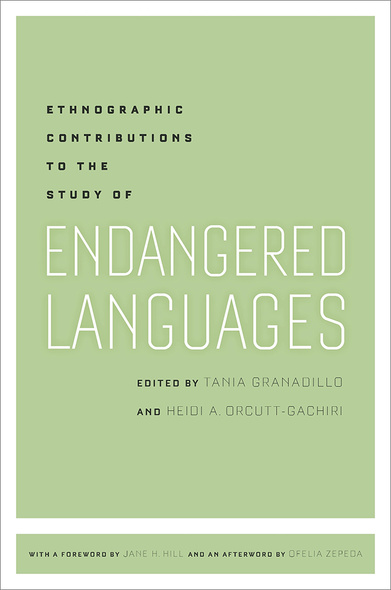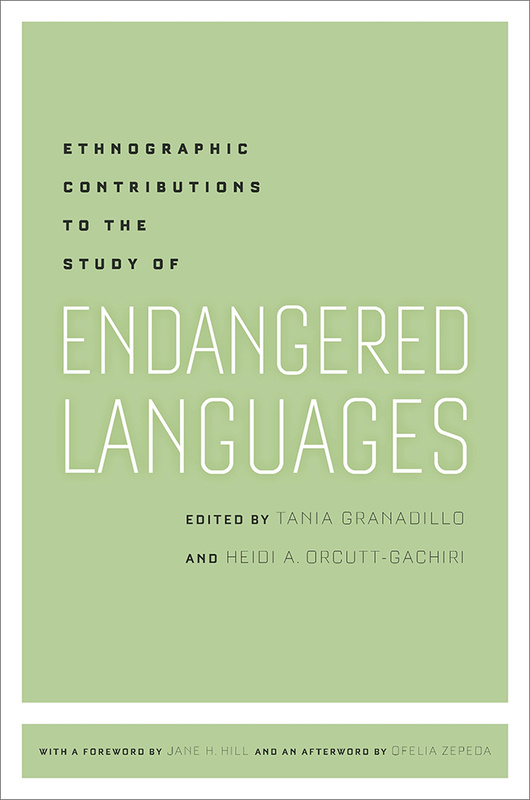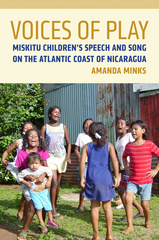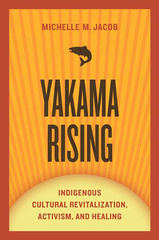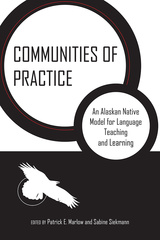Ethnographic Contributions to the Study of Endangered Languages
Edited by Tania Granadillo and Heidi A. Orcutt-Gachiri
The University of Arizona Press
It is a feature of the twenty-first century that world languages are displacing local languages at an alarming rate, transforming social relations and complicating cultural transmission in the process. This language shift—the gradual abandonment of minority languages in favor of national or international languages—is often in response to inequalities in power, signaling a pressure to conform to the political and economic structures represented by the newly dominant languages. In its most extreme form, language shift can result in language death and thus the permanent loss of traditional knowledge and lifeways.
To combat this, indigenous and scholarly communities around the world have undertaken various efforts, from archiving and lexicography to the creation of educational and cultural programs. What works in one community, however, may not work in another. Indeed, while the causes of language endangerment may be familiar, the responses to it depend on “highly specific local conditions and opportunities.” In keeping with this premise, the editors of this volume insist that to understand language endangerment, “researchers and communities must come to understand what is happening to the speakers, not just what is happening to the language.” The eleven case studies assembled here strive to fill a gap in the study of endangered languages by providing much-needed sociohistorical and ethnographic context and thus connecting specific language phenomena to larger national and international issues.
The goal is to provide theoretical and methodological tools for researchers and organizers to best address the specific needs of communities facing language endangerment. The case studies here span regions as diverse as Kenya, Siberia, Papua New Guinea, Mexico, Venezuela, the United States, and Germany. The volume includes a foreword by linguistic anthropologist Jane Hill and an afterword by poet and linguist Ofelia Zepeda.
To combat this, indigenous and scholarly communities around the world have undertaken various efforts, from archiving and lexicography to the creation of educational and cultural programs. What works in one community, however, may not work in another. Indeed, while the causes of language endangerment may be familiar, the responses to it depend on “highly specific local conditions and opportunities.” In keeping with this premise, the editors of this volume insist that to understand language endangerment, “researchers and communities must come to understand what is happening to the speakers, not just what is happening to the language.” The eleven case studies assembled here strive to fill a gap in the study of endangered languages by providing much-needed sociohistorical and ethnographic context and thus connecting specific language phenomena to larger national and international issues.
The goal is to provide theoretical and methodological tools for researchers and organizers to best address the specific needs of communities facing language endangerment. The case studies here span regions as diverse as Kenya, Siberia, Papua New Guinea, Mexico, Venezuela, the United States, and Germany. The volume includes a foreword by linguistic anthropologist Jane Hill and an afterword by poet and linguist Ofelia Zepeda.
This book provides an important theoretical inspiration and a methodological tool for scholars as it helps us understand that notions of power and agency are deployed and contained in linguistic ideologies.’—Economic Botany
‘Language endangerment is one of the most important issues in anthropology and linguistics today. That is why careful, ethnographically oriented studies of the kind offered in this volume are so valuable. This book is clearly the work of a new generation of dynamic scholars committed to linguistic anthropological scholarship that is meaningful and useful to the people they study.’—Joel Sherzer, author of Kuna Ways of Speaking
Tania Granadillo is a professor of anthropology at the University of Western Ontario. Her research focuses on the endangered languages of the Amazon. Heidi A. Orcutt-Gachiri is currently affiliated with the University of Arizona. Her research has focused on the effects of the discourses of education, nationalism, and development on language endangerment in Kenya.
Jane H. Hill
1 Introduction
Tania Granadillo and Heidi A. Orcutt-Gachiri
Part I: Effects of Educational Policies
2 anguage Ideologies in the Discourse of Education That Promote Language Shift in Kenya
Heidi A. Orcutt-Gachiri
3 Education and Its Role in Language Endangerment in Siberia and the Far East
Olga Kazakevich
4 Is English Education Always Detrimental to Vernacular Languages? Education and Language Endangerment from a Papua New Guinean Perspective
M. Lynn Landweer
Part II: Effects of Revitalization
5 Indigenous Language Revitalization in Tecate, Baja California: A Narrative Account
Paula Meyer, with Jon Meza Cuero
6 Territory, Identity, and Language among the Añun People (Venezuela)
Marie-France Patte
7 The Agency of Language Ideologies in Miami Indian Recovery
Melissa A. Rinehart
Part III: Effects of Sociohistorical Processes
8 Stolen Life, Preserved Language: Life and Death and Endangered Languages
Barbara G. Hoffman
9 Kurripako and Its Speakers in Venezuela: A Linguistic Anthropological Analysis of Language Endangerment
Tania Granadillo
10 Language Loss in a Beautiful Scenery: The Case of Öömrang, a Frisian Dialect in Northern Germany
Lars von Karstedt
11 A gency and Ideology in Language Shift and Language Maintenance
Mark A. Sicoli
12 Intersections: History, Language, and Globalization in the North Carolina Cherokee Communities
Heidi M. Altman
Afterword
Ofelia Zepeda
Appendix A: Sociolinguistic Profile of English L1 Speakers
Notes
References Cited
About the Editors
About the Contributors
Index

